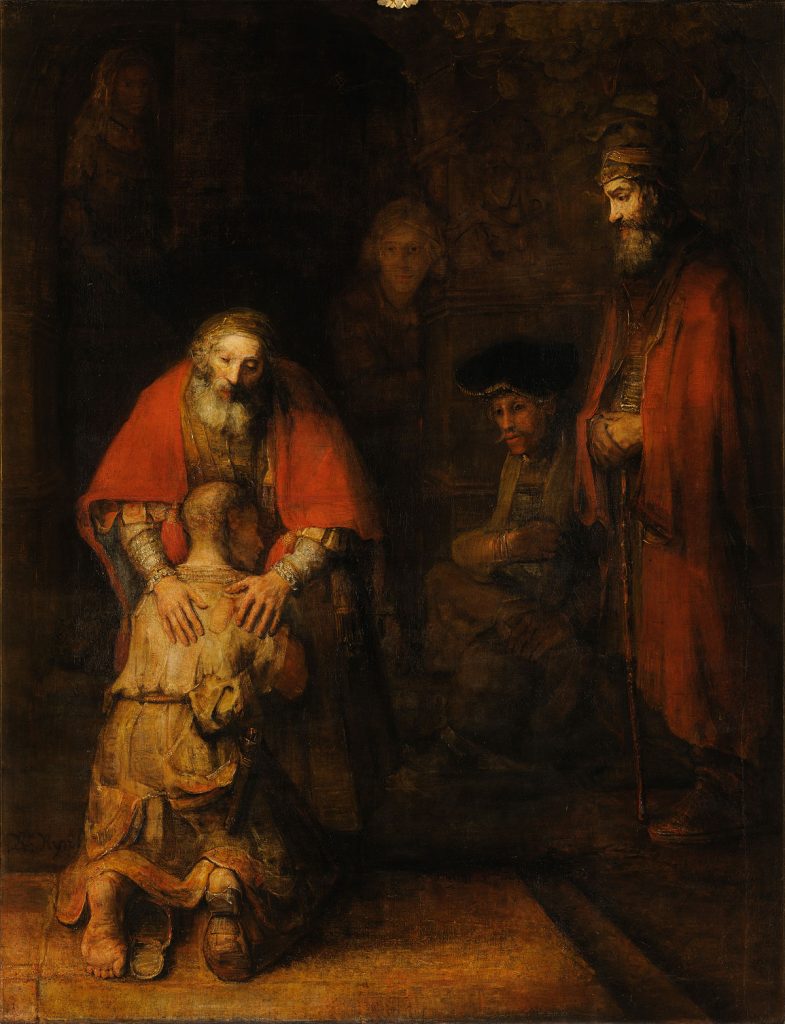This Tuesday we will be discussing Chapter 3 “The Younger Son’s Return” of Fr. Henry Nouwen’s The Return of the Prodigal Son: A Story of Homecoming. This is that portion of the parable found in Luke 15:14-19. I have also attached chapter 3 of Kenneth Bailey’s The Cross & the Prodigal (pp.52-62) which provides the cultural background of this portion of the story. Within these verses, think through the nature of the younger son’s decision to return home. He has severed what relationship he had with his father and his village but has now hit rock bottom. In making his decision to return home, has anything really changed about the younger son? Bailey points out that the son’s proposed request for forgiveness echoes the same (insincere) request for forgiveness that Pharaoh says to Moses after the eighth plague. Luke 15:18, Ex. 10:16. Is the younger son’s request simply driven by selfish desire or is he beginning to realize the true nature of his relationship with the father? Why does the younger son think that all will be well if he simply works to pay his father back the funds?
For me, the most compelling part of Nouwen’s book is his understanding of Jesus as the perfection of the prodigal son. Fr. Nouwen reaches this insight by looking at John’s prologue in John 1:1-18, Paul’s hymn in Philippians 2:6-11, and the crucifixion narrative in Matthew 27:45-50. Please read these passages in the scriptures, look at the painting again, and see if you agree that we can see Jesus as the perfection of the younger son. And if Jesus is there, what does that mean for us?
Dinner is at 6. The menu is ham and sweet potatoes. Discussion about 6:45. Hope to see you here.
Since therefore the children share in flesh and blood, he himself likewise partook of the same nature, that through death he might destroy him who has the power the death . . . . For because he himself has suffered and been tempted, he is able to help those who are tempted.
Hebrews 2:14-18

